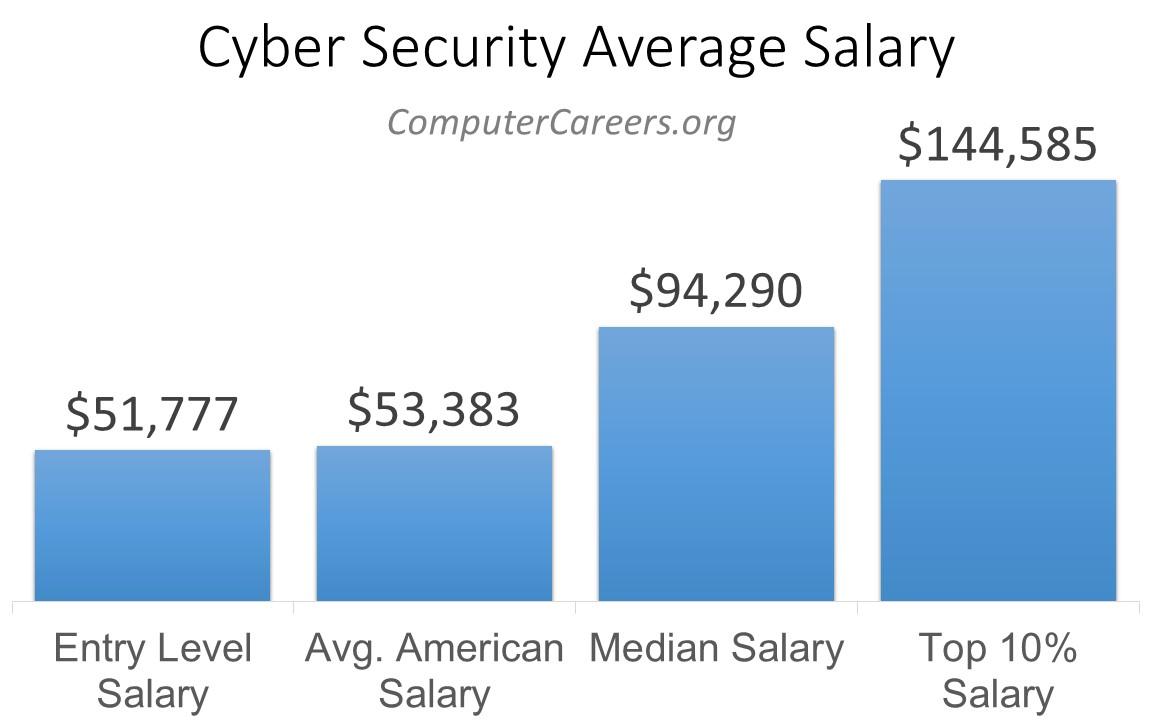
In an era where digital threats are becoming increasingly sophisticated, the demand for skilled cyber security professionals is at an all-time high. As businesses and organizations prioritize safeguarding their data, understanding the dynamics of a cyber security salary is crucial for anyone considering a career in this field. This article delves into the factors influencing cyber security salaries, the various roles within the sector, and how you can maximize your earning potential.
Key Takeaways
- Cyber security professionals are in high demand, with salaries reflecting the critical nature of their work.
- Factors such as location, experience, and specialization significantly impact salary levels.
- Continuous learning and certification can enhance career prospects and salary potential.

The Growing Demand for Cyber Security Professionals
The digital landscape is rapidly evolving, with cyber threats posing significant risks to businesses, governments, and individuals. This has led to an unprecedented demand for cyber security professionals who can safeguard sensitive information and systems. As a result, cyber security roles are not only abundant but also offer competitive salaries to attract top talent.
Factors Influencing Cyber Security Salary
Several factors can influence the salary of a cyber security professional, including:
- Experience: As with most professions, experience plays a significant role in determining salary. Entry-level positions may offer modest salaries, but experienced professionals can command substantial pay increases.
- Location: Salaries can vary significantly based on geographic location. Urban areas with a high concentration of tech companies often offer higher salaries to compete for talent.
- Education and Certifications: Advanced degrees and industry-recognized certifications, such as CISSP, CISM, or CEH, can enhance a professional’s credentials and lead to higher salaries.
- Specialization: Specializing in areas such as penetration testing, network security, or security analysis can lead to higher salaries due to the niche skills required.
Exploring Cyber Security Roles and Their Salaries
Cyber security encompasses a variety of roles, each with its own set of responsibilities and salary expectations. Here are some common positions within the field:
1. Cyber Security Analyst
Cyber security analysts are responsible for monitoring networks, detecting security breaches, and implementing security measures to protect an organization’s data. The average salary for a cyber security analyst ranges from $70,000 to $100,000, depending on experience and location.
2. Penetration Tester

Penetration testers, also known as ethical hackers, are tasked with identifying vulnerabilities in systems and networks by simulating cyber attacks. Their work is crucial for preemptively addressing security weaknesses. Salaries for penetration testers can range from $80,000 to $120,000.
3. Security Architect
Security architects design and implement robust security systems to protect an organization’s IT infrastructure. This senior-level position requires extensive experience and expertise, with salaries often exceeding $120,000.
4. Chief Information Security Officer (CISO)
The CISO is a top executive responsible for overseeing an organization’s entire security strategy. This role demands significant experience and leadership skills, with salaries typically ranging from $150,000 to $250,000 or more.
5. Security Consultant
Security consultants provide expert advice to organizations on how to improve their security posture. This role often involves working with multiple clients, and salaries can vary widely, typically ranging from $90,000 to $150,000.

Maximizing Your Cyber Security Salary
If you’re looking to maximize your earning potential in the cyber security field, consider the following strategies:

- Continuous Learning: Stay updated with the latest trends and technologies in cyber security by pursuing additional certifications and attending workshops.
- Networking: Build a strong professional network within the cyber security community to learn about new opportunities and gain insights from peers.
- Specialize: Consider specializing in high-demand areas such as cloud security, artificial intelligence, or blockchain technology.
- Negotiate: Don’t hesitate to negotiate your salary, especially if you bring unique skills or experience to the table.
The Future of Cyber Security Salaries
The future of cyber security salaries looks promising as the demand for skilled professionals continues to grow. With cyber threats becoming more sophisticated, organizations are likely to invest more in their security infrastructure, leading to higher salaries and more opportunities for advancement. As a result, a career in cyber security not only offers financial rewards but also the chance to play a critical role in protecting vital information and systems.

Understanding the factors that influence cyber security salaries can help you make informed decisions about your career path in this dynamic field. Whether you’re just starting or looking to advance your career, focusing on gaining experience, obtaining certifications, and specializing in niche areas can significantly enhance your earning potential. As the digital world continues to evolve, the role of cyber security professionals will remain crucial, offering both job security and lucrative salaries.